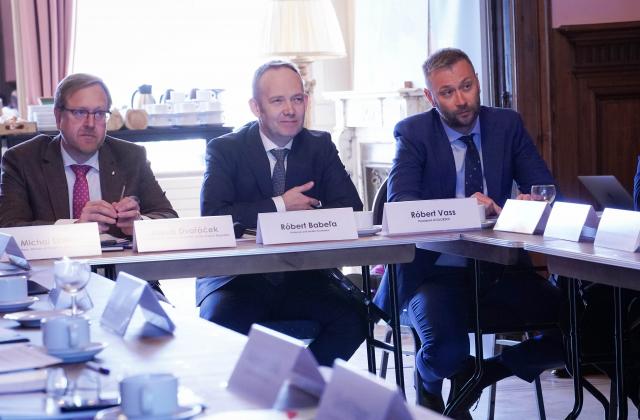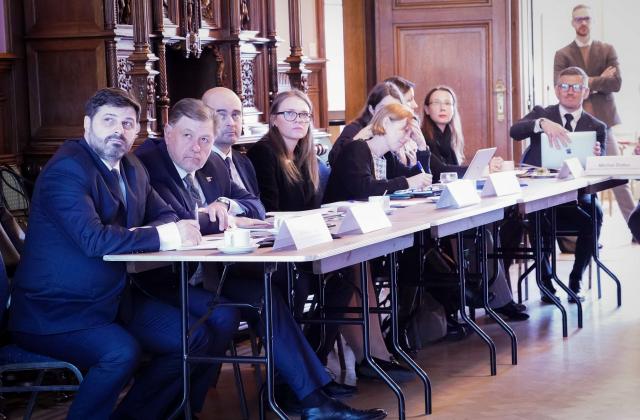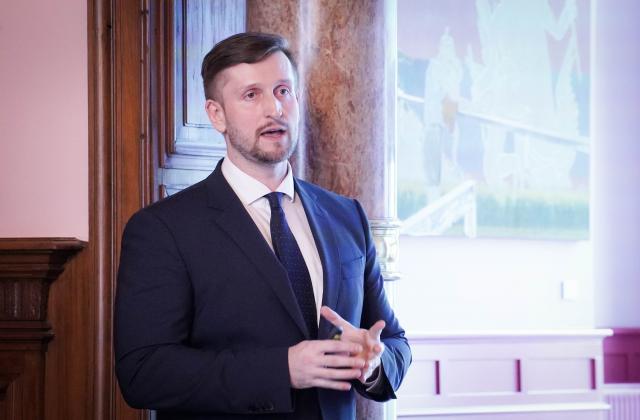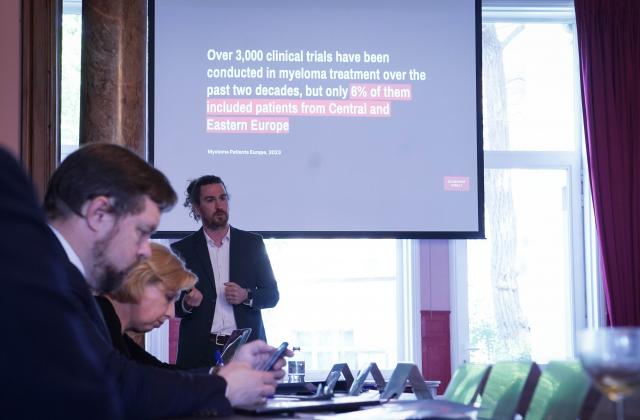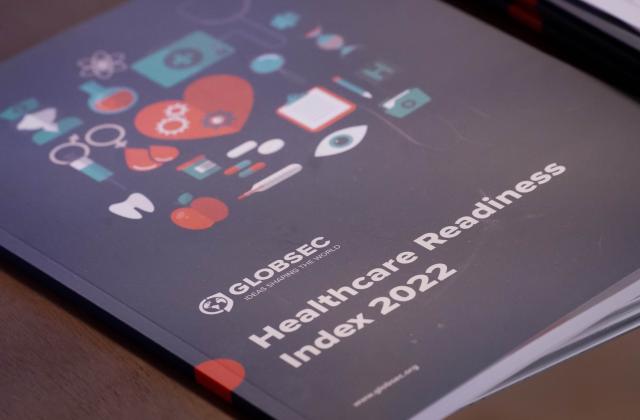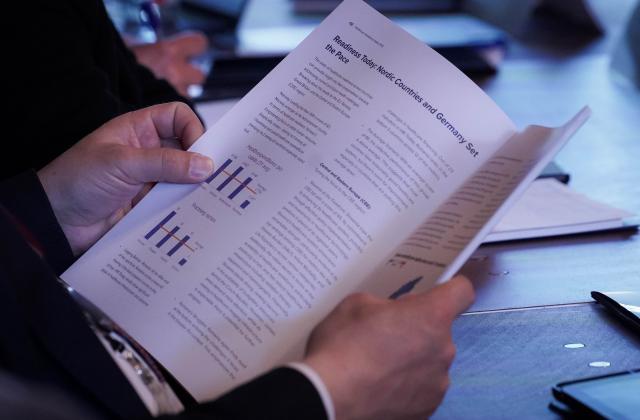Event Summary - The Future of Healthcare in CEE: Navigating the Challenges and Paving the Way For Sustainable Healthcare Systems
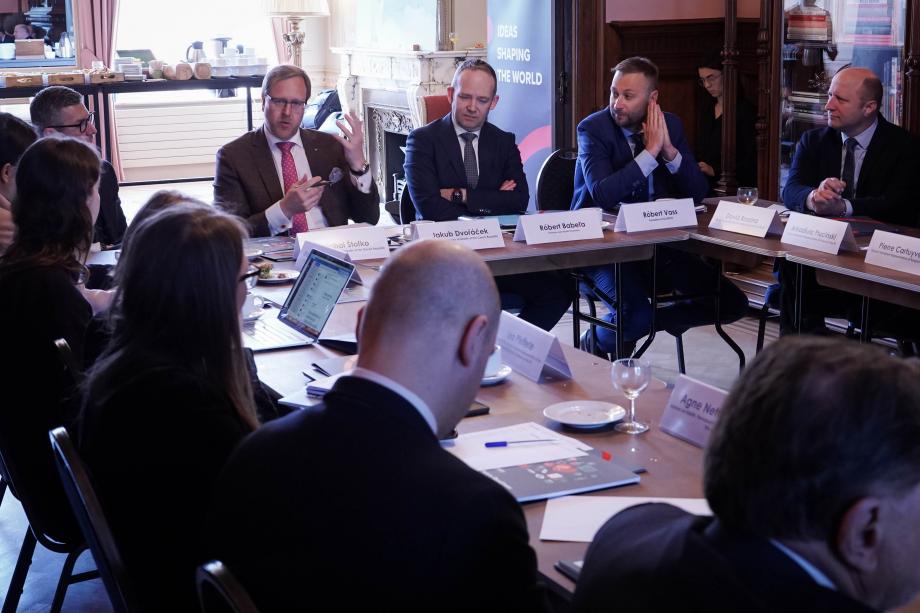
On the 23rd of April, GLOBSEC, in cooperation with the Ministry of Health of the Czech Republic and the Permanent Representation of the Czech Republic to the EU, organized an exclusive closed-door roundtable discussion centred on the state of the healthcare system in the CEE region, with specific focus on the economic implications of not implementing early diagnosis, preventative measures, and novel medications in the treatment of cancer patients.
The event was held under the auspices of the Czech State Secretary, Mr. Jakub Dvořáček, who, together with the President of GLOBSEC, Mr. Róbert Vass, welcomed the guests consisting of ministers, state secretaries, ambassadors and health attachés. Vass delivered the opening remarks, highlighting the need for increased investment in our healthcare systems in order to prepare for the future challenges. In his opening address, President Vass underscored GLOBSEC’s involvement in the health area, citing the COVID-19 pandemic as a pivotal moment, revealing that the state of our healthcare systems is a security matter. As such, GLOBSEC has developed its Healthcare Readiness Index, which analyses the preparedness of healthcare systems for the current and future challenges.
The discussion has centred around two presentations of unique healthcare-related, data-driven reports:
- The GLOBSEC Healthcare Readiness Index 2022, presented by GLOBSEC Associate Fellow Mr. Martin Smatana, which ranks the EU countries based on how prepared their healthcare systems are to face the challenges of today and tomorrow;
- The exclusive data from the upcoming Economist Impact case study focused on the clinical and economic implications of gaps in care and treatment availability for multiple myeloma in CEE, presented by Senior Health Policy Consultant Mr. Gerard Dunleavy.
During his presentation, Mr. Smatana showcased the findings of the Healthcare Readiness Index 2022, in which the CEE countries presented the lowest readiness of healthcare systems. Among them, Romania has the lowest score, and Slovenia, among Western counterparts, displays the best preparedness. CEE countries, therefore, face similar issues, among which are the low healthcare expenditures perceived as short-term costs rather than long-term investments. While this indicator has significantly improved during the pandemic, the increased expenditure was not focused on innovation but rather on wages and inflation tackling.
One of the issues identified was also poor access to new medicines, which is linked to limited access to innovation. Mr. Smatana noted that health policy stability and continuity generally translate into better results within the Index due to the possibility of strategic and long-term planning: “The tenure of a minister of health in the Western European countries is around 1000 days, while in the CEE region, it is around 400 days. This translates into a clear correlation between the tenure of ministers and the overall state of readiness of the healthcare system.” Finally, to improve the healthcare systems in CEE, it is vital to not only keep up the pace of investments with Western counterparts but also surpass them, for which more funds, also at the EU level, are needed.
The second part of the discussion focused on the Economist Impact’s Mr. Dunleavy’s ongoing research on the rare form of cancer, Multiple Myeloma, in Central Europe and the Baltics (CE&B). Multiple myeloma, once deemed swiftly fatal, is now manageable for many due to treatment advancements and comprehensive care. However, despite global progress, a significant care gap persists in the CE&B region, where mortality rates related to this cancer surged by 32% from 1990 to 2019. Among the recommendations for bolstering patient outcomes and the overall economic efficacy, Mr. Dunleavy highlighted the need to facilitate early diagnosis, create targeted investments into the healthcare system, access novel medication and incentivize clinical trials.
“Investing in healthcare is not just a fiscal decision; it is an investment in the vitality and productivity of our people. By prioritizing healthcare as a strategic pillar, governments can cultivate a healthier, more resilient workforce, ultimately enhancing our country’s competitiveness on the global stage,” Prof. Róbert Babeľa, Health Economist and former State Secretary at the Ministry of Health of the Slovak Republic, and the moderator of the discussion, concluded.
The discussion was a run-up event to the GLOBSEC Forum 2024, which, for the first time, will be held in Prague, Czech Republic, from the 30th of August to the 1st of September.
